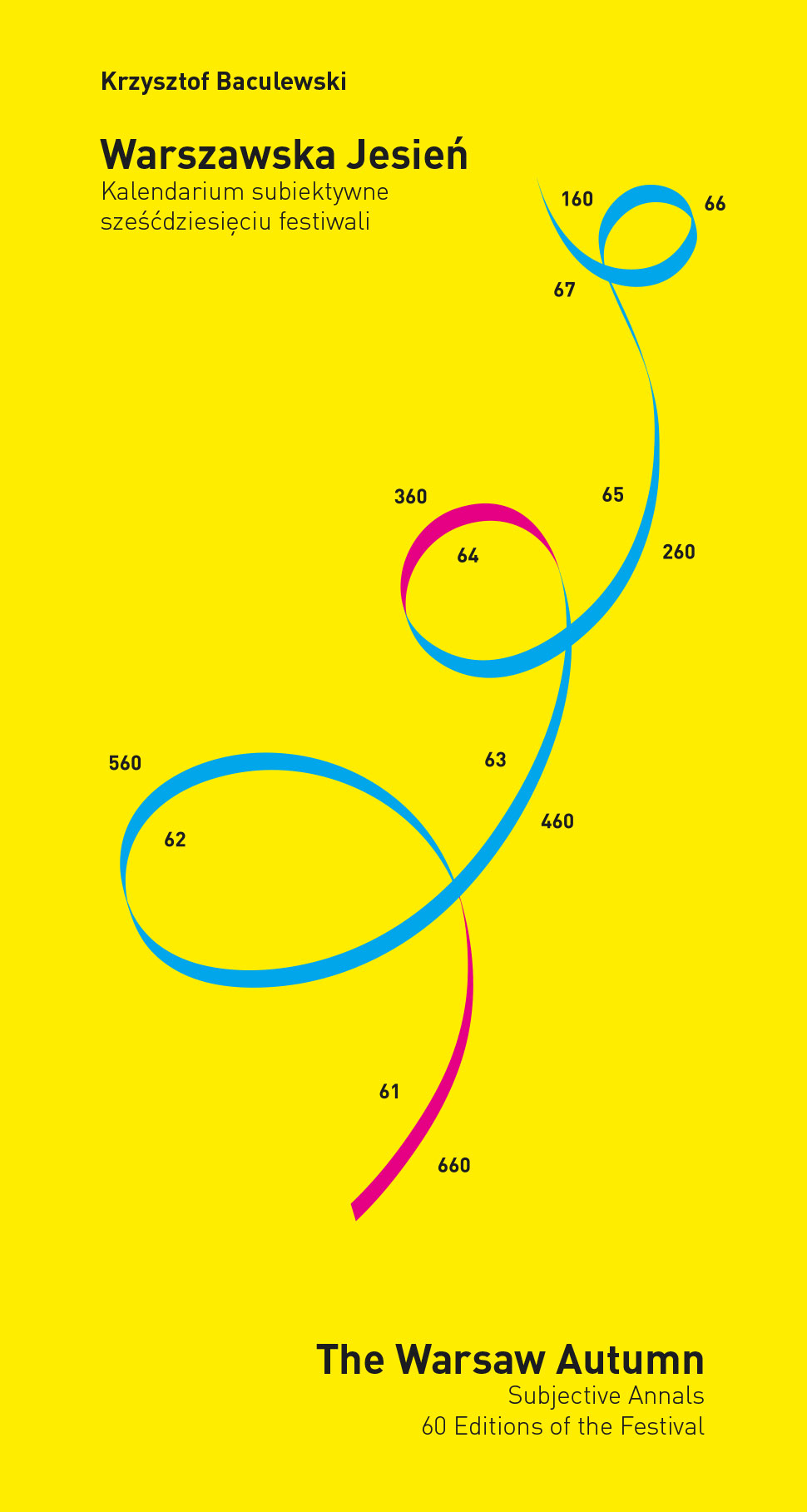
Krzysztof Baculewski "Subjective Annals 60 Editions of the Festival"
Though without a subtitle of the kind that had been used in 1998, this edition of the Festival also had its leitmotifs: sound and space, vision and visionaries, as well as the 'German Wave'. Exceptionally, the inaugural concert took place at the Grand Theatre -National Opera. The programme comprised Ata by Iannis Xenakis, Forte e piano by Kazimierz Serocki and Watt by Pascal Dusapin. A new venue was used for some of the concerts: the Stefan Demby Auditorium at the National Library, which hosted, among others, a significant piano recital by Pierre-Laurent Aimard, performing works by György Ligeti: the set of fourteen Études and the cycle Musica ricercata. Prominent performers included the Camerata Silesia, Zentrum für Kunst und Medientechnologie Karlsruhe, Arditti String Quartet, and others. A performance of Stockhausen's already historical (completed in 1957) Gruppen by the Janáček Philharmonic from Ostrava and the S.E.M. Orchestra from New York caused a sensation. The conductors were Petr Kotik, Zsolt Nagy and Christian Arming. It took place at the Sports Hall of the Legia Football Club in the Bemowo district of Warsaw: three orchestras and the audience were comfortably housed in this gigantic hall. The very fact of holding a concert outside the traditional concert venues, such as the Philharmonic, the Academy of Music, the Lutosławski Polish Radio Concert Studio or the churches, attracted a great number of young people to the event. It is also true that the musical youth had not previously had a chance (apart from a few recordings) to hear that classic serialist work. ere was also a monographic concert of music by Andrzej Krzanowski commemorating the 10th anniversary of the composer's death. Two cycles were performed on that occasion: the four Broadcasts separated by Three Pieces for Oboe and Trumpet. The Royal Castle hosted a concert featuring Baroque instruments, and in the Lutosławski Concert Studio the Belarussian ensemble Classic-Avantgarde played, among other items, Jour, contre-jour by Gérard Grisey and Light on the Path by Jauhen Poplausky of Grodno.
The 'Warsaw Autumn' final concert again took place in unconventional surroundings: the architecture of the Royal Castle courtyard.
Among the works then performed was the fourth part of the cycle De materie by Louis Andriessen, and Prometheus. The Poem of Fire by Alexander Scriabin. What made the situation even more unconventional was that, in spite of the temperature falling below 10o C, and the presence of honourable guests in the front rows, the dancer in Andriessen's work appeared topless. The performance of Scriabin's composition was supposed to be accompanied by a computer reconstruction of the light effects envisaged by the composer. This was only partially successful, since the electronic equipment lost out in confrontation with the weather conditions.